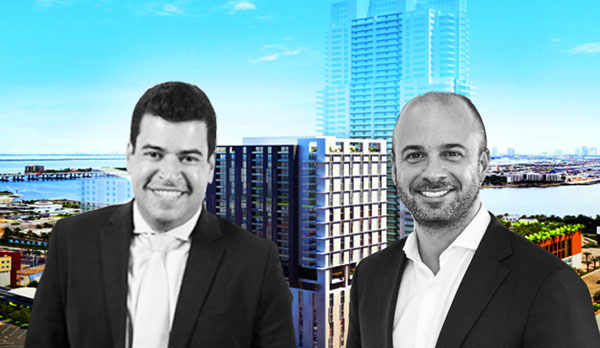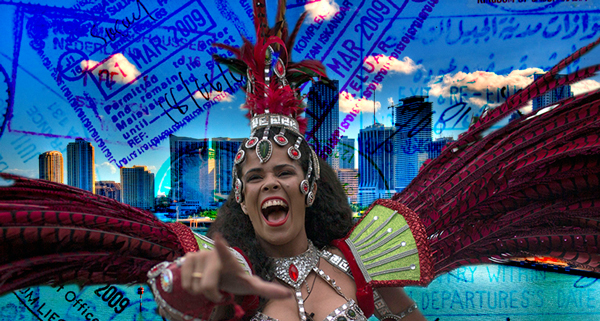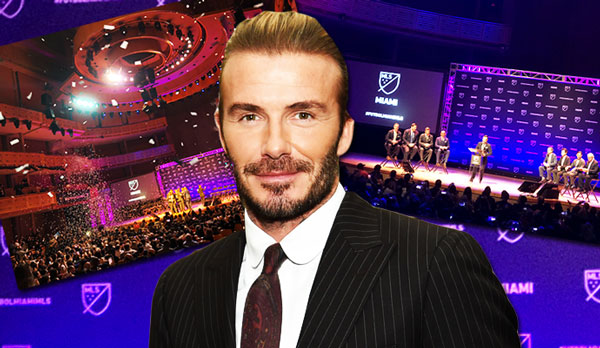
Yotel apartments coming to downtown Miami
Aria Development Group and Kuwaiti company AQARAT are going residential with their Yotel development in downtown Miami.
Four years after first launching plans for a Yotel tower on the site at 227 Northeast Second Street, the joint venture is unveiling YotelPad, a residential Yotel-branded project.
The Miami property will be the first YotelPad on the East Coast. David Arditi, principal of Aria, plans to break ground by the end of the year and deliver the 31-story, 250-unit building in 2020. He said he’ll finance construction with a roughly $75 million loan.
Unit prices will start at about $250,000. OneWorld Properties is handling sales of the units, which will range from 425-square-foot studios to 700-square-foot two-bedrooms, according to the project’s website. OneWorld Properties, led by Peggy Fucci, will handle sales.
Owners and hotel guests will have access to bike storage, a coffee bar, restaurant and bar, fitness center, co-working space, a lounge, pool deck and pet spa.

Miami and a Brazilian Carnival dancer (Credit: Flickr and Getty Images)
Brazilians are getting in on the EB-5 game
The United States welcomed 282 Brazilian immigrants last year through the EB-5 investor visa program, as the country rose to become the third largest user of EB-5 visas for the first time, a report from the U.S. Department of State shows.
Brazil’s rise to No. 3 for fiscal year 2017 came on an 88 percent increase in new visas issued year-over-year. In 2015, just 34 EB-5 visas were issued to Brazilians.
Mainland Chinese nationals still dominate the program, which has become a key source of financing for high-end residential projects in New York City and Miami in recent years. Seventy-five percent of EB-5 visas, or more than 7,500, were awarded to mainlanders in 2017. The country with the second most visas was Vietnam, with 471 visas issued.
So where are the Brazilians investing? The government doesn’t provide project-level data, but EB-5 experts say all the evidence points to South Florida.
“The geographic focus of Latin American investors really centers on South Florida,” said Julian Montero, an attorney at Saul Ewing Arnstein & Lehr in Miami. “Based on what we have seen … I would be shocked if it turns out that less than half of these Brazilians selected projects are not in Florida.”

The launch event for David Beckham and his partners’ Major League Soccer franchise (Credit: Katherine Kallergis, GettyImages)
David Beckham officially launches Miami franchise
He’s gone up against the toughest bruisers and tactical minds in world soccer. But even for David Beckham, bringing Major League Soccer to Miami was a monumental challenge.
Soccer fans drowned out the sounds of Gloria Estefan’s “Conga” at the Adrienne Arsht Center in January as they prepared for the official launch of the franchise, brought to the city by Beckham and his partners — Marcelo Claure, Jorge and Jose Mas, and Simon Fuller.
After going through multiple sites, including failed bids at PortMiami, in downtown Miami and Little Havana, the investment group is focused on making Overtown work, Beckham told local news station WPLG. In June, the county approved the $9 million sale of three acres in Overtown, part
of an assemblage that also includes six privately owned acres the group bought for $19 million in 2016.
The venture nearly fell apart about two months ago, Claure, the CEO of Sprint, said at the press conference. MLS owners were also reportedly critical of the discounted $25 million expansion fee that Beckham and his partners are paying.
“About 60 days ago, we were done. We were not going to do this,” Claure said, crediting Jorge and Jose Mas as the missing link the franchise needed to move forward.
The 25,000-square-foot, $200 million stadium will be built on a nine-acre site between Northwest Sixth and Eighth streets, north of the Miami River in Overtown.
